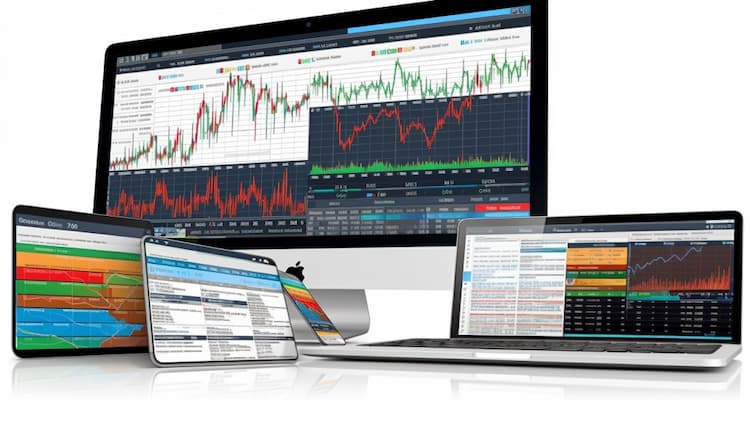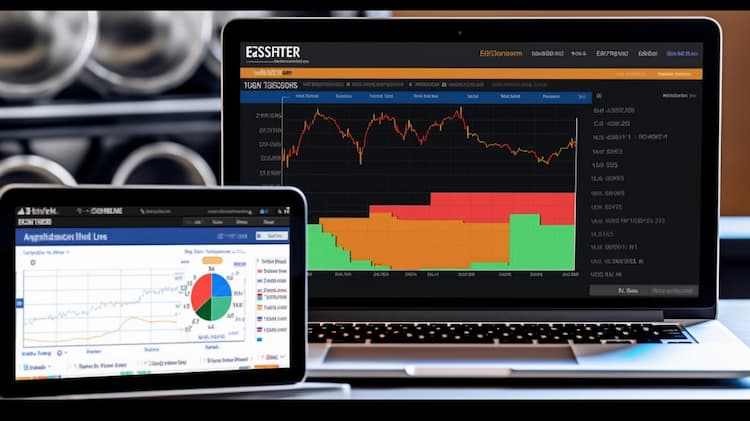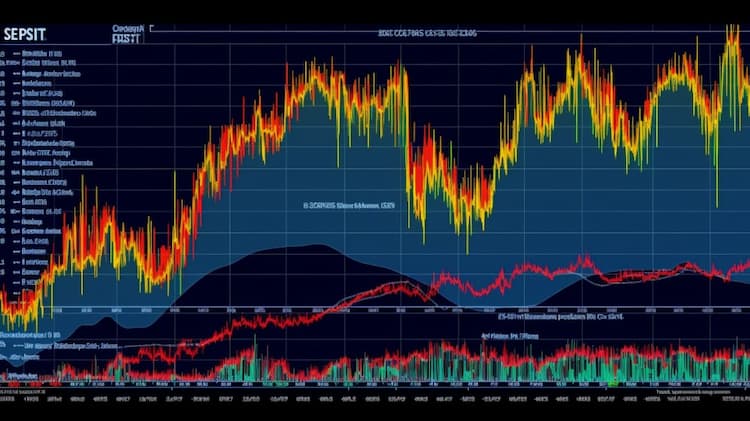
What are the best Financial ETFs to invest in?
If you're looking to explore the world of financial exchange-traded funds (ETFs), this article serves as a concise guide to help you identify some of the best options available. Discover the potential benefits and considerations of investing in financial ETFs, as we highlight key factors that could influence your decision-making process. ## Best Financial ETFs to Invest In : Real ETF Comparison
When looking for the best financial ETFs to invest in, one real ETF that stands out is the Vanguard Financials ETF (VFH). This ETF focuses on the financial sector, including banks, insurance companies, and financial services firms. It offers investors exposure to a wide range of financial instruments within the sector. One key advantage of VFH is its low expense ratio, making it an attractive choice for cost-conscious investors.
Compared to similar real ETFs like the iShares U.S. Financials ETF (IYF) and the Financial Select Sector SPDR Fund (XLF), VFH has shown strong performance over the long term. It has consistently outperformed its competitors in terms of returns and has a track record of maintaining stability even during market fluctuations.
Best Financial ETFs to Invest In : Diversification Benefits
Diversification is a crucial aspect of any investment strategy, and financial ETFs can offer significant diversification benefits. By investing in a financial ETF, investors gain exposure to a diverse basket of financial stocks, spreading their risk across various companies within the sector. This can be especially advantageous in times of economic uncertainty or when certain financial sub-industries outperform others.
 VFH overlap What are the best Financial ETFs to invest in?
VFH overlap What are the best Financial ETFs to invest in?
Best Financial ETFs to Invest In : Income Generation
For investors seeking income generation, some financial ETFs may be more appealing than others. ETFs that focus on dividend-paying financial stocks can provide a steady stream of income through dividend distributions. These dividends can be reinvested or used as a source of passive income for investors.
Best Financial ETFs to Invest In : Risk Considerations
As with any investment, it's essential to consider the risks associated with financial ETFs. The financial sector can be sensitive to changes in interest rates, economic conditions, and regulatory environments. Before investing in a financial ETF, investors should assess their risk tolerance and make informed decisions based on their financial goals and investment horizon.
Conclusion
In conclusion, when seeking the best financial ETFs to invest in, the Vanguard Financials ETF (VFH) stands out as an attractive option due to its low expense ratio and strong performance. Financial ETFs, in general, offer diversification benefits, income generation potential, and exposure to a critical sector of the economy. However, it's crucial for investors to conduct thorough research, consider risk factors, and align their investments with their overall financial objectives.
Disclaimer: This article is for informational purposes only and does not provide investment advisory services.
Sources:
IYF ETF issuer
IYF ETF official page
FAQ
What are financial ETFs?
Financial ETFs, or exchange-traded funds, are investment vehicles that track the performance of a basket of stocks within the financial sector. These ETFs provide investors with exposure to a diversified portfolio of financial companies, including banks, insurance companies, asset managers, and other financial institutions.
What factors should I consider when evaluating financial ETFs?
When evaluating financial ETFs, consider factors such as the fund's expense ratio, tracking error, liquidity, underlying index methodology, diversification, and the specific subsector or region the ETF focuses on. It's also important to assess the ETF's performance history, asset size, and the issuer's reputation.
Can you recommend some popular financial ETFs?
While specific investment recommendations are beyond the scope of this response, some popular financial ETFs you may consider researching include the Financial Select Sector SPDR Fund (XLF), Vanguard Financials ETF (VFH), iShares U.S. Financials ETF (IYF), and Invesco KBW Bank ETF (KBWB). Remember to conduct thorough research and consult with a financial advisor before making any investment decisions.
What are the advantages of investing in financial ETFs?
Investing in financial ETFs offers several advantages. Firstly, they provide diversification by offering exposure to a broad range of financial companies within a single investment. Secondly, ETFs typically have lower expense ratios compared to actively managed mutual funds. Additionally, financial ETFs provide liquidity, as they can be bought and sold throughout the trading day on the stock exchange.
What are some risks associated with financial ETFs?
Financial ETFs are subject to general market risks and fluctuations. They can be affected by changes in interest rates, economic conditions, regulatory changes, and investor sentiment towards the financial sector. Additionally, if the ETF focuses on a specific subsector, such as banking or insurance, it may be more susceptible to risks specific to that industry.



















































